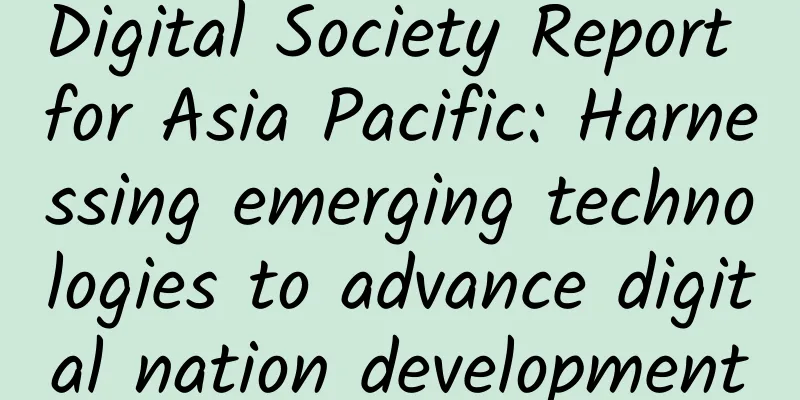Digital Society Report for Asia Pacific: Harnessing emerging technologies to advance digital nation development

|
GSMA M360 Asia Pacific returns this year, hosted for the first time in Seoul, South Korea by KT, bringing together industry leaders from across the region to discuss the future of mobile technology and the impact of digital technologies and services on the economies of Asia Pacific countries. GSMA released its latest report "Digital Societies in Asia Pacific - Leveraging Emerging Technologies to Advance Digital Nations". The report assesses the role of emerging technologies in the Asia Pacific countries' aspirations to become digital nations. 96% of the population in Asia Pacific is now covered by mobile broadband networks, and operators will invest nearly $260 billion in their networks by 2030. Most of this investment will be used for 5G technology. Cultivating a digital nation in Asia Pacific Countries in the Asia-Pacific region will strive to become "digital nations" by 2030. These efforts will integrate digital technologies and services into all sectors of the economy, build resilient economies with limited resources, and achieve sustainable and inclusive economic growth. Key findings include: As countries in the Asia-Pacific region strive to become digital nations, emerging technologies are moving toward the mainstream. In the 2022 edition of the Government AI Readiness Index, four countries in the Asia-Pacific region ranked in the top ten: Singapore (second), South Korea (sixth), Australia (eighth) and Japan (ninth). High-speed connectivity is the cornerstone of a digital nation, and mobile broadband networks, the primary channel for most people to access the internet, now cover 96% of the population in Asia Pacific. Between 2023 and 2030, mobile operators in Asia Pacific will spend $259 billion on their networks. As digital technologies and services play an increasingly important role in the economies of Asia-Pacific countries, a whole-of-government approach and international cooperation are needed. |
<<: Microsoft and Adobe work together to optimize the touch screen experience of PS
Recommend
Google Maps celebrates its 15th anniversary with a major update, a redesigned interface and new thoughtful features
[[314224]] Yesterday, on the 15th anniversary of ...
How to create short videos that can boost traffic in your live broadcast room?
How to make profits through this barrier-free liv...
The new mobile app rankings for 2020 are released
The number of mobile Internet users this month re...
Internet people love to slap people in the face? The laid-off employees can fill up a "one acre of land"
[[147471]] I think your circle of friends yesterd...
I get scared as soon as I enter the elevator. Is this also a psychological problem?!
Review expert: Li Xianhong, national second-level...
How to effectively build a points system for Internet finance APPs?
Each product has its own characteristics and feat...
Counterpoint: Cellular IoT module shipments to grow 10% year-on-year in the fourth quarter of 2024
According to Counterpoint’s latest Global Cellula...
Insectophobes beware: When bed bugs invade, the biggest mistake you can make is trying to kill them?
Leviathan Press: Last summer, I had several red, ...
Love concept "explosion"! 99% of the roses you received on Valentine's Day are fake?
Every February 14, all the roses in the flower sh...
The next three to five years will be the real growth period for smart TVs
With the withdrawal of energy- saving subsidies a...
Bilibili Product Analysis
In the current industry context, Bilibili has bla...
5 key elements of event operation!
Event operations are more explosive and require a...
Why do men in TV dramas bleed from their noses when they see beautiful women?
This article was reviewed by Tao Ning, PhD, Assoc...
Guaranteed passing of the four major NSCA certification courses: International private tutoring pre-exam tutoring 4
Course Catalog ├──ACE CPT Guaranteed Pass Course ...
A brief analysis of the three principles and four strategies for community content operations
A good community will inevitably form a stable cl...









